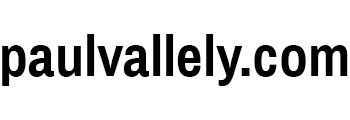
public life
Paul Vallely returned from covering the famine in Ethiopia in 1985 troubled by the adverse conditions under which ordinary people lived. In country after country, all across sub-Saharan Africa, he encountered the same situations and came to the realisation that the problem was not primarily drought and crop failure. That was just the trigger.
The deeper cause was the skewed trading and financial relationship between poor countries and the industrialised nations. Trade was conducted under terms which were weighted in favour of the rich and against the poor. As a result developing countries had accumulated huge debts which they were struggling to repay to rich countries and multilateral bodies like the International Monetary Fund. Repaying these so burdened the poorer nations that they were forced to cut spending basics like health and education. The debt repayments which were sent to the rich world far outweighed the overseas aid payments which the industrialised countries sent by way of poverty relief.
To highlight all this Vallely wrote a book entitled Bad Samaritans – First World Ethics and Third World Debt. The book set out to show that change was both a moral imperative and also in the self-interest of the rich nations. The book was described by Jonathan Porritt as “required reading for atheistic economists, economically ill-at-ease theologians and any thinking person in between”. In it Vallely coined the phrase “from charity to justice” to describe the change that was required in relations between the rich and the poor.
The slogan was taken up by campaigners from Jubilee 2000 to Make Poverty History and Live 8.
* * *
Vallely then became involved in public advocacy and campaigning for change. After travelling across Africa with Bob Geldof to decide how to spend the £100m raised by Live Aid, he became active in a number of prominent UK aid agencies.
He was chair of the fair trade organisation Traidcraft, which markets developing world goods in the UK and pays fair prices to their producers.
He also chaired the Catholic Institute for International Relations, an advocacy and skill-share development agency.
He has been at advisor to Christian Aid and CAFOD.
He wrote a study of land reform in the Philippines, Brazil and Eritrea entitled Promised Lands.
In 2004 Vallely was seconded to work with Tony Blair’s Commission for Africa for which he co-authored the final report Our Common Interest in 2005. It recommended the acceleration of development on the continent, with a doubling of aid, significant forgiveness of debt, the scrapping agricultural export subsidies by rich nations and an end to ‘reciprocity’ in world trade negotiations.
The report became the blueprint for the G8 summit of world leaders in Gleneagles that year who implemented its recommendations of aid and debt but failed to deliver on trade.
Vallely worked with Geldof and Bono in lobbying world leaders before the summit both directly and through the Live 8 concerts which brought pressure to bear on the politicians.
In 2006 he was created a Companion of St Michael and St George (CMG) in the Queen’s Birthday Honours List “for services to journalism and to the developing world”.
He is now a Senior Research Fellow at the Global Development Institute, University of Manchester.
* * *
Paul Vallely is a consultant on business and organisational ethics. He works with companies on how to extend corporate social responsibility through the warp and weft of a business to make sound ethics integral to the organisation’s entire approach.
He was a founding member of the Board of Corporate Social Responsibility for Waitrose supermarkets and he has advised the John Lewis Partnership on human rights in the supply chain.
From 2013 to 2019 he was Visiting Professor in Public Ethics at the University of Chester.
His thinking is rooted in Catholic Social Thought, a rich tradition of moral philosophy which draws on 100 years of attempts by the Catholic church to find a third way between unregulated capitalism and an over-mighty state, between political systems which privilege the individual at the expense of society and big government approaches which subsume the rights of individuals in collective goals.
He is the editor of The New Politics: Catholic Social Teaching for the 21st century.
Vallely has been an adviser to both the Archbishop of Canterbury and the Catholic Bishops of England and Wales for whom he wrote A Place of Redemption: a Christian approach to punishment and prison.
He is now a member of the Independent Commission into the Experience of Victims and Long-Term Prisoners, which is considering the impact of longer and longer sentences on both inmates and the victims of their crimes. It is chaired by Bishop James Jones who chaired the Hillsborough Independent Panel.
WHAT OTHERS SAY
“Paul Vallely’s highlighting of the need to move ‘from charity to justice’ was one of the key inspirations behind the foundation of the Jubilee 2000 debt campaign and a political message which went global with Live 8. His dedication to the people of Africa, and the world’s poor in general, has been exemplary for the past two decades.” BOB GELDOF
“Paul Vallely has an unusual ability to distil arguments, which may sometimes be technical or complex, into clear and strong messages for those involved in the making of policy.” LORD NICHOLAS STERN author of the Stern Review on Climate Change
“Paul Vallely has a strategic mind and political instinct for how to make change happen.” JUSTIN FORSYTH former deputy director of Unicef
“Over many years, Paul Vallely has turned his incisive mind to how a business can successfully combine making a profit with attending to the ethical underpinnings which make companies vehicles to promote the wider good of society. He is one of a group of pioneering thinkers in this field.” DAVID NUSSBAUM CEO of The Elders and chair of Transparency International UK
“Paul Vallely’s observations are sharp and sound, his advice unerring.” Bishop JAMES JONES chair of the Hillsborough Independent Panel
